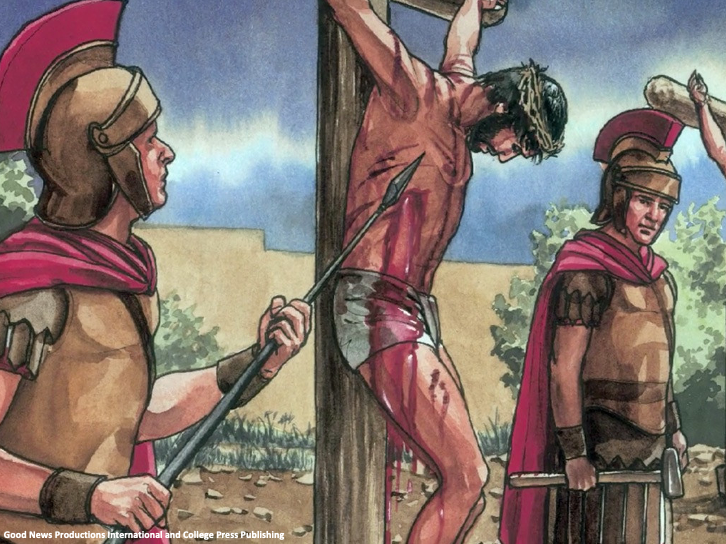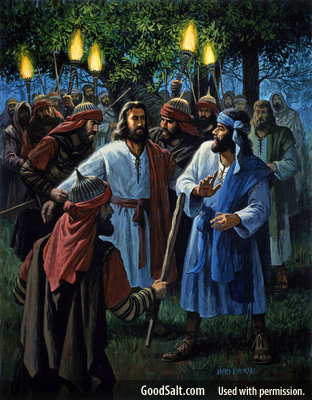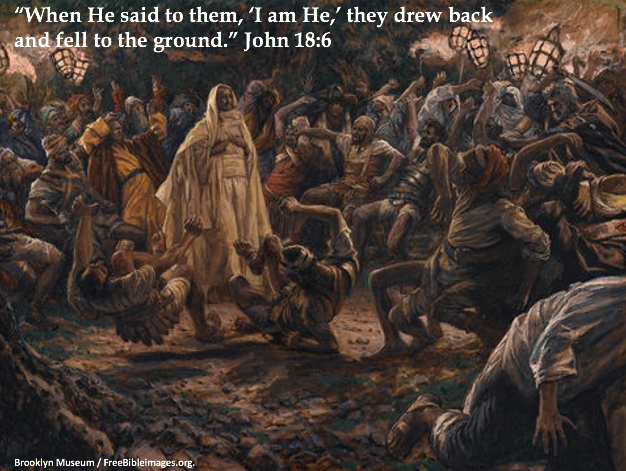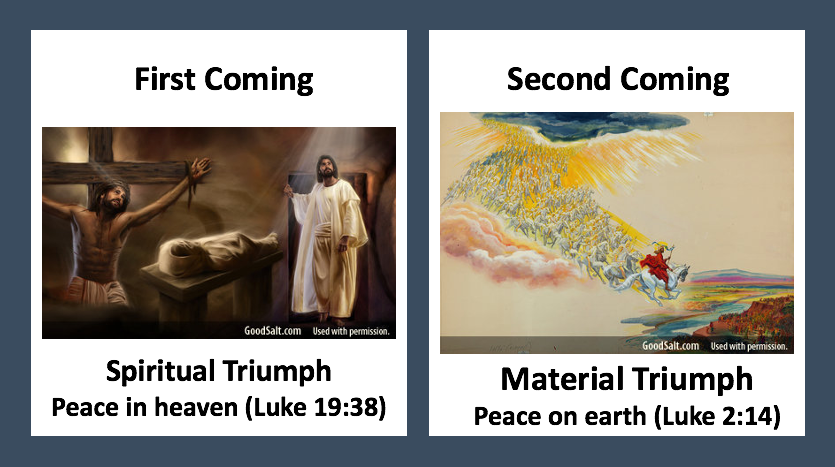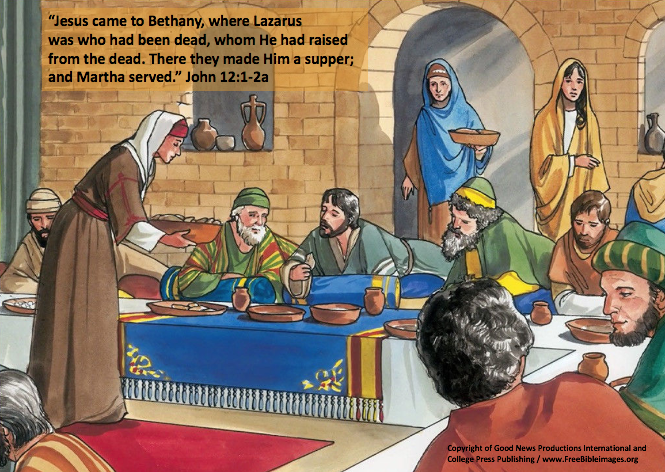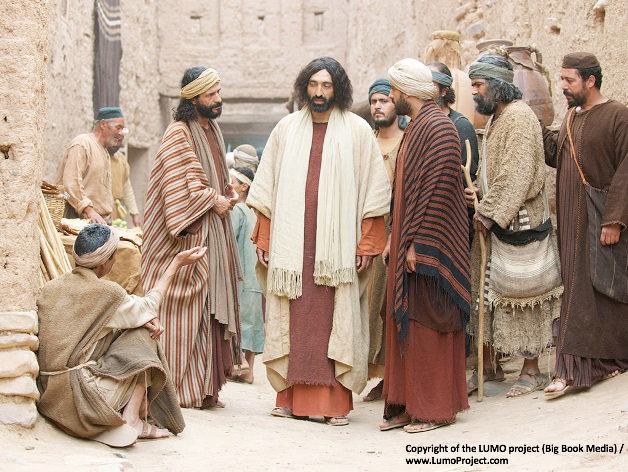“But one of the soldiers pierced His side with a spear, and immediately blood and water came out.” John 19:34
Since Jesus died on the cross, there have been many attempts to deny this historical fact. Why? Because it would explain the empty tomb of Jesus. For example, near the end of the first century, the false teachings of Docetism and Gnosticism were on the rise. 1 Both of these groups denied that Jesus was a real man. “Docetists claimed that Jesus only seemed (Gr. dokeo, ‘to seem,’ therefore the name ‘Docetist’) to be fully human.” 2 Since Jesus only seemed to be a man, it only seemed that He died.
“The word ‘Gnostic’ refers to secret knowledge, as the Gnostics believed that people needed secret knowledge to be freed from the material world, which is inherently evil.” 3 One second-century Gnostic writer, Basilides, wrote the Gospel according to Basilides. Since gnosticism teaches that the material world is evil, Basilides concluded that “Jesus must not have had a material body, and therefore he could not have been crucified.” 4
An early church leader named “Irenaeus records what Basilides taught about the death of Jesus on the cross: ‘He [Christ] did not himself suffer death, but Simon, a certain man of Cyrene, being compelled, bore the cross in his stead; so that this latter being transfigured by him, that he might be thought to be Jesus, was crucified, through ignorance and error, while Jesus himself received the form of Simon, and, standing by, laughed at them.’ ” 5
The founder of Islam, Muhammad, was influenced by such false teachings when he traveled on trade routes with his uncle. 6 His primary knowledge of Christianity came from docetic sources. 7 Muhammad later testified in the Qur’an, “That they rejected Faith; that they uttered against Mary a grave false charge; That they said [in boast], ‘We killed Christ Jesus the son of Mary, the Messenger of Allah’; but they killed him not, nor crucified him, but so it was made to appear to them, and those who differ therein are full of doubts, with no [certain] knowledge, but only conjecture to follow, for of a surety they killed him not.” (Sura 4:156-157) 8
A former Muslim convincingly argues that this Quranic teaching that says Jesus did not die by crucifixion originated from the second-century Gnostic teaching. 9 Three of the main views concerning Jesus’ death among Muslims today include that Allah supernaturally preserved Jesus’ life so He did not die on the cross. 10 Jesus simply “swooned” or fainted on the cross and later recovered in the tomb. 11 And Allah miraculously made someone else to look like Jesus and this person (perhaps Judas, Pilate or Simon of Cyrene) was mistakenly crucified in Jesus’ place. 12
How sad that over a billion Muslims have been misled to believe such a destructive lie. For you see, if Jesus did not die, He did not rise from the dead and there is no payment for sin. And if there is no payment for sin, there is no hope of forgiveness and eternal life. The Bible says, “If Christ is not risen, your faith is futile; you are still in your sins!” (I Corinthians 15:17).
With this in mind, let’s pay close attention to the next picture that the apostle John presents as he makes it very clear that Jesus Christ really did die on the cross. From this picture we will learn that JESUS’ LEGS WERE NOT BROKEN AND HIS SIDE WAS PIERCED SO WE MAY BELIEVE JESUS IS OUR PASSOVER LAMB WHO DIED FOR US (John 19:31-37).
“Therefore, because it was the Preparation Day, that the bodies should not remain on the cross on the Sabbath (for that Sabbath was a high day), the Jews asked Pilate that their legs might be broken, and that they might be taken away.” (John 19:31). “It sometimes took crucifixion victims days to die. Normally, then, the Romans would have left the men on the crosses.” 13 But because this was was “the Preparation Day” on a Friday when the Jews had to prepare for the Sabbath, work was forbidden after sunset when the Sabbath would begin according to the Jewish reckoning of time. Also, this was going to be a special Sabbath (“high day”) because in addition to it being the seventh day, it would also be the day when the Jews celebrated the Passover. 14
“The Jews” did not want the bodies of these criminals to “remain on the cross on the Sabbath” because according to the Mosaic Law if you leave a man hanging on a tree overnight it would defile the land (Deuteronomy 21:22-23).So “the Jews asked Pilate that their legs might be broken” “so that they would die and could be buried. Victims hanging on a cross had to put weight on their legs in order to lift themselves to breathe. Without the use of their legs, they would die of asphyxiation.” 15
“32 Then the soldiers came and broke the legs of the first and of the other who was crucified with Him. 33 But when they came to Jesus and saw that He was already dead, they did not break His legs.” (John 19:32-33). The soldiers “broke the legs” of the criminals hanging beside Jesus because they were still alive.But why didn’t the Roman soldiers break Jesus’ legs? Pilate had given the order to break His legs. They would not have disobeyed Pilate’s command if they were not certain Jesus was already dead. Keep in mind these professional executioners were accustomed to this form of execution and were very familiar with the signs of death. It was their professional opinion based upon years of experience that Jesus Christ was dead. He had not fainted or swooned as some mistakenly teach.
These soldiers also recognized this man was “Jesus,” not some other man posing as Jesus. The apostle John, an eyewitness to this event, also concluded that this Man Who died was “Jesus “ (John 19:33-37), not some impostor. So both the Swoon Theory or Substitution Theory are not plausible.
In case you are still not convinced that Jesus died, John then tells us, “But one of the soldiers pierced His side with a spear, and immediately blood and water came out.” (John 19:34). This piercing of Jesus’ side confirmed that He was dead. In order for “blood and water” to come out of such a wound, the heart would have had to stop beating. 16 The sac around the heart, the pericardium, had filled with water and burst. Contrary to the heresies which arose in the second century that taught Jesus was solely divine and not human, this eyewitness testimony from John confirms that Jesus really did die and that He is fully human and fully God (cf. John 1:1, 14).
Someone may ask, “How can God die? Isn’t He eternal so He cannot die?” Think about this for a moment. When humans die, do our souls stop existing? No, our souls do not die. So even when we die as humans, it is our body that dies. We do not stop existing altogether. So it was with Jesus: He was killed with respect to His earthly body, but as God He did not stop existing. Sometimes, though, when people ask, “How can God die?” they are really asking “Who was ruling the universe when Jesus died?” For the Christian, the answer is simple. God the Father was ruling the universe when Jesus died. God the Father is not the Son, and the Father did not die on the cross. God the Son died on the cross. 17
Those who deny that Jesus died are telling a complete lie. Think of how much faith it takes to believe that Jesus did not die. Consider Christ, Who received thirty-nine lashes, hung on a cross for six hours, fainted on the cross according to skeptics, had a spear thrust into His side with water and blood coming out, and then later He woke up in a tomb and somehow crawled to that large stone that weighed over a ton and rolled it out of the way while all the Roman soldiers were out there guarding the tomb? Then He snuck by all the Roman guards? So when Jesus appeared to be resurrected, He was really lying? It takes a lot more faith to believe such a tale than to believe that Jesus really did die.
Even if you believe Jesus did not die, John says, “And he who has seen has testified, and his testimony is true; and he knows that he is telling the truth, so that you may believe.” (John 19:35). John is saying, “I was there. I saw with my own eyes what happened at the cross. I’m telling you the truth so you may believe Jesus did die as the promised Messiah!”
This is not just historical details. John testified “so that you may believe.” John recorded these details to enable us to believe that Jesus did die for our sins; that He did shed His blood for us; that He did pay our sin debt in full. When John testified of what happened at the cross, the result that is intended to take place in our lives is not pity for Jesus. It is not a deeper interest in history. It is belief or trust. Belief in the One Who demonstrated His infinite love toward us by shedding His own blood so we could be completely forgiven the moment we believe in Him (Acts 10:43; Ephesians 1:7).
John tells us that all that happened at the cross fulfilled Old Testament Scripture. “36 For these things were done that the Scripture should be fulfilled, ‘Not one of His bones shall be broken.’ 37 And again another Scripture says, ‘They shall look on Him whom they pierced.’ ” (John 19:36-37). “He quotes from Psalm 34:20 and Zechariah 12:10, proving it was no accident that Jesus was pierced rather than having his legs broken. Our sovereign God was fulfilling his Word.” 18
The fact that Jesus’ legs were not broken not only fulfilled Psalm 34:20, it also points to Jesus as our Passover Lamb of God (John 1:29; I Corinthians 5:7) since the Israelites were not to break the bones of their Passover lambs (cf. Exodus 12:5, 46; Numbers 9:12). Passover lambs had to be killed to apply their blood to the door posts and lintel of Israelite homes so God’s judgment would pass over each family (Exodus 12:3-13). Likewise, Jesus, our Passover Lamb, had to die so His blood would cause God’s eternal judgment to pass over every person who believes in Jesus.
Think about this for a moment. Who has more credibility? A follower of Jesus named, John, who was an eyewitness of Jesus’ life, death, and resurrection and lived in the same vicinity as Jesus’ community or a man named, Muhammad, who lived six hundred years after Jesus and over six hundred miles removed from where Jesus lived and ministered? 19 Would an objective observer consider John or Muhammad to have presented reliable historical evidence? The answer is obvious. John was there. John was an eyewitness. To say that Muhammad’s message is true and John’s is false simply because the Quran is inspired is not plausible to an objective observer.
“The basis of any historical case must be the primary sources, and in this case, the sources are unanimous, diverse, early, and plentiful: Jesus died by crucifixion. Starting almost immediately after Jesus’ death, over a dozen authors and traditions recorded the death of Jesus by crucifixion, including Christian, Jewish, and Roman sources, and their testimony was unanimous. For more than one hundred years, no record even suggests that Jesus survived death on the cross or otherwise circumvented his execution. This coheres well with what we know of crucifixion practices, in that there is no person in recorded history who ever survived a full Roman crucifixion. Positing that Jesus did not die on the cross would have served the agenda of the early Christians and those opposed to their message, but such a suggestion appears inconceivable. For those who study Jesus’ life in academia, the idea that Jesus did not die by crucifixion remains, to this day, outside the realm of possibility” 20
What gets you really excited in life? What are you extremely passionate about? For me, I am extremely passionate about the cross of Jesus Christ. It was there that we see the amazing love of Jesus Christ for all of us, regardless of our skin color, social class, or sin (Romans 5:8; I John 4:9-10). The cross is our source of faith (Galatians 2:20). It is our source of complete forgiveness (Colossians 2:13-14). It is our source of hope (Colossians 1:5). It is our source of life (John 3:14-15; I John 4:10). It is our source of power (I Corinthians 1:18). It is our source of victory over sin, death, and the devil (Romans 6:6; Colossians 2:15; Hebrews 2:14-15).
When you read about the impact of the cross, you may say to yourself, “But you don’t know what I have done. How can Jesus love me in view of all the terrible things I have thought, said, and done? How can He possibly forgive me?” The power of the cross is not dependent on your behavior. The power of the cross is based on the perfect sacrifice of Jesus, our Passover Lamb of God, Who was innocent and without sin. God has nailed the entire list of all your sins – past, present, and future – to the cross, and they have all been canceled as if they never happened or will happen (Colossians 2:13-14). That’s the power of the cross. That’s the power of Jesus’ love and forgiveness.
For you to experience the power of Jesus’ love and forgiveness, you must believe. Jesus invites you right now to believe in Him for His forgiveness and eternal life if you have never done so. Jesus said, “And as Moses lifted up the serpent in the wilderness, even so must the Son of Man be lifted up [on the cross], that whoever believes in Him should not perish but have eternal life.” (John 3:14-15). The power of the cross is not based on your behavior, but upon belief. Do you believe in Jesus Who died in your place on that cross to pay your sin debt in full? If you now do, you can tell Him this through prayer.
Prayer: Lord Jesus, thank You so much for the cross. Before today, I believed a lie that said You never died on that cross. Thank You for revealing the truth to me today that shows it was really You Who died on that cross. It was You Who paid for all my sins when Your blood poured out of Your side. Your legs were not broken so my brokenness could be healed. As best I know how, I am now believing in You Jesus to forgive all my sins and give me everlasting life. Thank You for the forgiveness and eternal life I now have. Please teach me more about the power of the cross to change my life for the better. In Your name I pray, Lord Jesus. Amen.
To help you grow in your new relationship with Jesus, please visit www.seeyouinheaven.life or www.knowing-Jesus.com.
ENDNOTES:
1. Tom Constable, Notes on John, 2017 Edition, pg. 360.
2. Ibid.
3. Nabeel Qureshi, No God but One: Allah or Jesus? (Grand Rapids: Zondervan, 2016 Kindle Edition), pg. 179 .
4. Ibid. pg. 180.
5. Ibid., pg. 179 cites Irenaeus of Lyons, “Irenaeus against heresies,” in The Ante-Nicene Fathers: The Apostolic Fathers with Justin Martyr and Irenaeus, ed. Alexander Roberts, James Donaldson, and A. Cleveland Coxe, Vol. 1, (Buffalo: Christians Literature Company, 1885), pg. 349.
6. Daniel Janosik, THE GUIDE TO ANSWERING ISLAM: What Every Christian Needs to Know About Islam and the Rise of Radical Islam (Cambridge, OH: Christian Publishing House, 2019 Kindle Edition), pg. 15.
7. Tom Constable, Notes on John, 2017, pg. 360 cites F. F. Bruce, The Gospel of John: Introduction, Exposition and Notes (Grand Rapids: Wm. B. Eerdmans Publishing Co., 1983), pg. 382, footnote 38.
8. The Qur’an: English translationby Abdullah Yusuf Ali (Goodworks Books, Kindle Edition), pg. 90.
9. Nabeel Qureshi, No God but One: Allah or Jesus?, pp. 179–181.
10. Ibid., pp. 170-173.
11. Daniel Janosik, THE GUIDE TO ANSWERING ISLAM, pg. 282.
12. Norman L. Geisler and Abdul Saleeb, Answering Islam: The Crescent in Light of the Cross, Second Edition (Grand Rapids: Baker Books, 2002), pg. 67.
13. Tony Evans, CSB Bibles by Holman. The Tony Evans Bible Commentary (B & H Publishing Group, Kindle Edition, 2019), pg. 1825.
14. J. Carl Laney, Moody Gospel John Commentary (Chicago: Moody Press, 1992), pp. 350-351.
15. Tony Evans, The Tony Evans Bible Commentary, pg. 1825.
16. Ibid.
17. Adapted from Nabeel Qureshi, No God but One: Allah or Jesus?, pp. 89-90.
18. Tony Evans, The Tony Evans Bible Commentary, pg. 1825.
19. Adapted from Nabeel Qureshi, No God but One: Allah or Jesus?, pp. 176-177.
20. Ibid., pg. 169.

